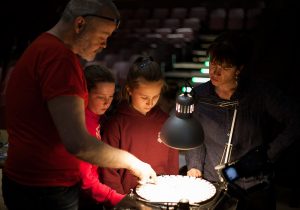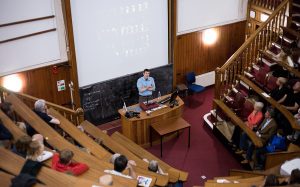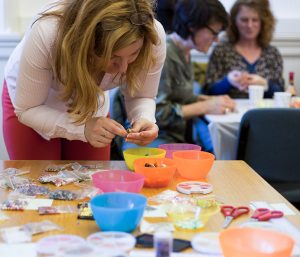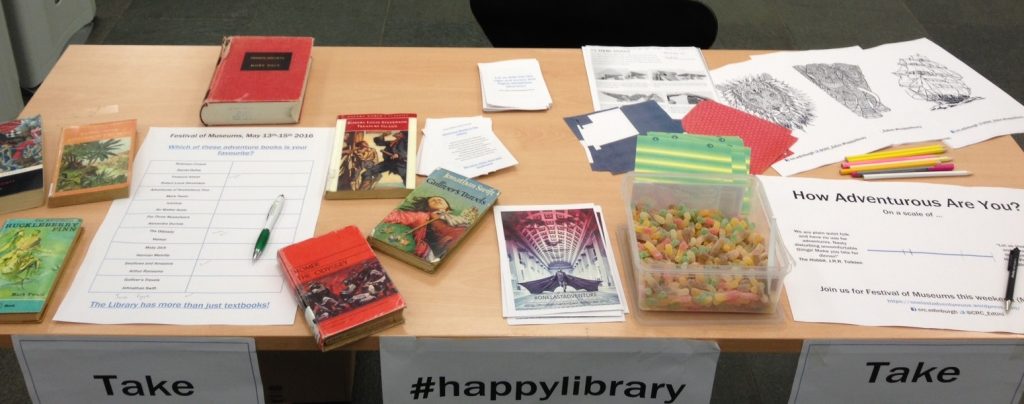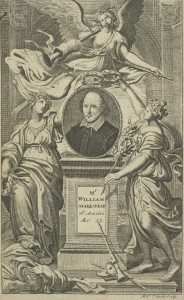 After a morning spent with project conservator Emily Hick who introduced us to conservation theory, we had the chance to try out some of the techniques in practice. From surface cleaning to tear repair, we were able to take the first steps in learning how to conserve paper and understand the practical and ethical considerations involved in conservation.
After a morning spent with project conservator Emily Hick who introduced us to conservation theory, we had the chance to try out some of the techniques in practice. From surface cleaning to tear repair, we were able to take the first steps in learning how to conserve paper and understand the practical and ethical considerations involved in conservation.
Fin West and John Glass then led a session on the fascinating world of rare books. As  cataloguers themselves, they picked out items in collection they had worked with personally. As well as seeing items dating back to the 16th century, we were surprised to learn that the department also features examples of graphic novels and comics. To give us a flavour of their roles at the university, we were each given a varied selection of donated books to assess by checking for duplicate records within the library catalogue.
cataloguers themselves, they picked out items in collection they had worked with personally. As well as seeing items dating back to the 16th century, we were surprised to learn that the department also features examples of graphic novels and comics. To give us a flavour of their roles at the university, we were each given a varied selection of donated books to assess by checking for duplicate records within the library catalogue.
The final session brought a complete change in tone with a visit to the Anatomy Museum, where we were greeted by two giant elephant skeletons. Ruth Pollitt then introduced us to the university’s extensive collection of specimens. We came face to face with the skeleton of William Burke, of the notorious murderers Burke and Hare. Once part of the teaching resources for Edinburgh’s medical school, the collections are still invaluable for visiting researchers and historians.
As part of the summer school, we were each assigned projects to complete over the week. Our role has been to investigate the significance of social media within the heritage sector. Other projects include designing events to promote the recently acquired Paolozzi mosaics; planning an exhibition using items from the collection around the theme ‘Green’; and learning about the different methods used in collections documentation. Each group will present their findings at the end of the week.



 Collections is running its very first Summer School to provide an overview of different aspects of the heritage sector; with a focus on collections, exhibitions and engagement. We are participating in the Summer school ourselves, and will be taking over the CRC’s social media – so make sure to check out our Facebook and Twitter takeover.
Collections is running its very first Summer School to provide an overview of different aspects of the heritage sector; with a focus on collections, exhibitions and engagement. We are participating in the Summer school ourselves, and will be taking over the CRC’s social media – so make sure to check out our Facebook and Twitter takeover.


